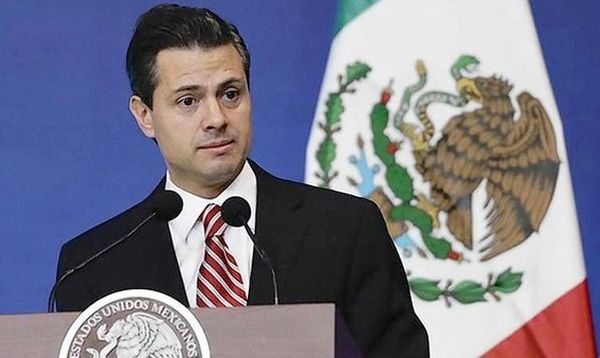Mexico City, Mexico - On March 18th, Mexico celebrated the day president Lazaro Cardenas expropriated Mexicoís oil industry. Now, president Enrique Pena Nieto is getting ready to break up the State oil monopoly.
Earlier this month, it was reported that Pena Nietoís political party, the Institutional Revolutionary Party, or PRI, which controls 241 of 500 seats in the lower house voted during its national assembly to agree to, "end its opposition to constitutional changes that would ease state-owned Petroleos Mexicanosís grip on the oil industry."
Breaking up Pemex and opening refining, exploration, and extraction of oil to foreign companies has been one of Pena Nietoís political pledges. While he never specifically said he wanted to sell oil leases, he has said Pemex needs to be broken up.
For years the oil giant has been mired in bureaucracy and corruption. Pemex oil production had dropped and there have been a series of accidents at Pemex facilities due to lack of maintenance and oversight, including the recent explosion at Pemex headquarters in Mexico City, which killed 34 people.
Enrique Pena Nieto against Pemex
The possibility of whether Pemex should be broken up and privatized is a divided issue for the Mexican people, but as the country celebrates Pemexís 75th anniversary this week, it will also be celebrating a fading leftist, nationalistic streak that grew out of the revolution of 1910 through the 1970's.
Before Pemex was formed, all drilling, refining, and export of oil in Mexico was done by foreign companies. In 1937 the newly formed Petroleum Workers Union of Mexico led to a strike and filed a lawsuit against the oil companies. The oil companies counter-sued but the Mexican supreme court ruled in favor of the union.
When the oil companies refused to pay, President Lazaro Cardenas ordered the expropriation of all oil companies. Within two months Cardenas formed Petroleos Mexicanos, giving the company exclusive rights of drilling, refining, and selling oil in Mexico. From then on, Mexicans have seen oil as their patrimony and a source of pride.
One of the problems facing the breakup of Pemex, is that Pena Nieto would need to change the constitution, and in order to do so he will need two thirds vote by congress.
Despite corruption and low outputs, many Mexicans donít trust the break up of the monopoly. In theory it sounds like a good idea, as long as revenues from oil somehow make it back to the Mexican people. But one need only look as far as the breakup of two other State owned monopolies, Telefonos de Mexico and Ferrocarriles Nacionales de Mexico.
Both monopolies were handed out to individual companies and have mostly remained as private monopolies. Carlos Slim, who bought (or some might say was given) Telefonos de Mexico in the 1990's became the richest man in the world.
Telephone service in Mexico remains a monopoly and Mexicans pay some of the highest telephone usage fees in the world.
Ferrocarriles Nacionales de Mexico was also nationalized by president Lazaro Cardenas in 1938. When the company was broken up and sold in 1998, Ferromex took a large chunk of the railroad and then acquired more to make it the largest railroad in Mexico in terms of rail mileage. Ferromex is part of Grupo Mexico, which also received a huge portion of the stateís copper mining when that monopoly was broken up.
Mexicans are still waiting for the windfall from these state owned monopoly breakups. And if Pemex is next, Mexicans might be in for a big surprise. The PRI has also voted to agree to tax food and medicine.
La Fuente de Petroleos, the monument to the expropriation of the oil industry, is a glorious looking fountain set between two of Mexico Cityís poshest neighborhoods, Polanco and Las Lomas. As Pena Nieto and the PRI move towards privatization, Mexicans donít have to look too far from the fountain to see who will benefit from the breakup of Pemex.


